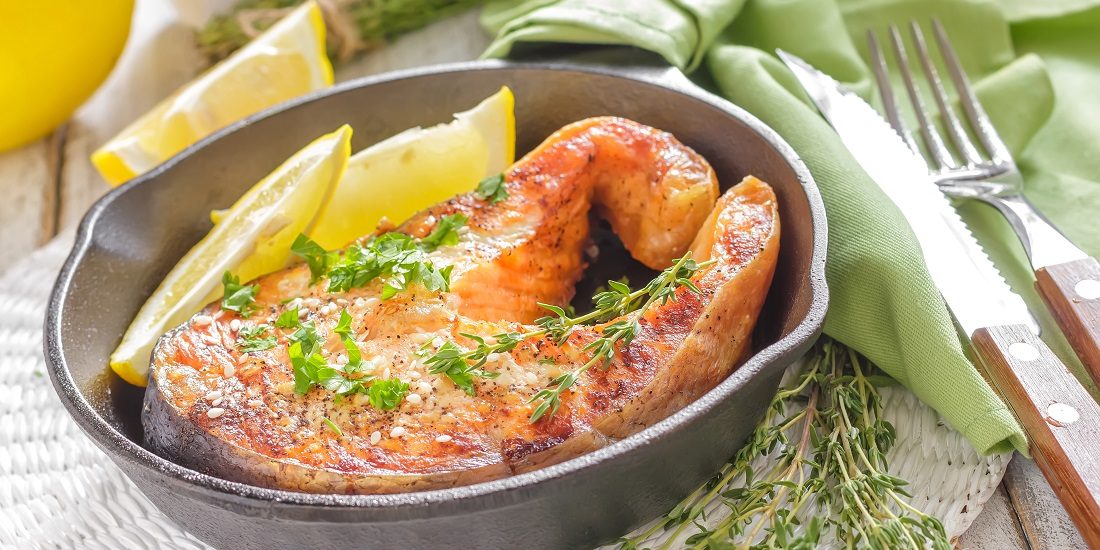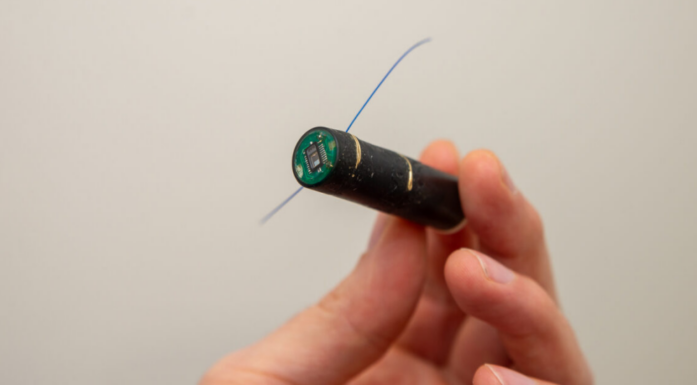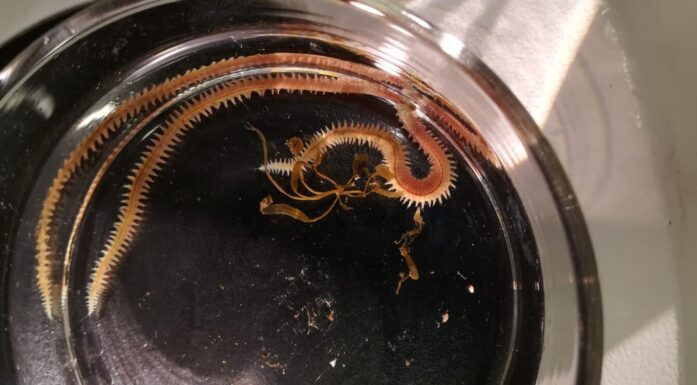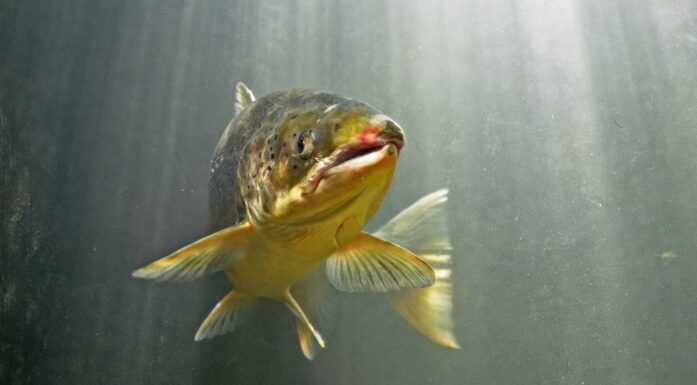Cheap plant oil can give us healthier salmon
The amount of omega-3 fatty acids in farmed salmon is dropping. But a reasonable and affordable solution may make salmon even healthier to eat.
Farmed salmon usually contains less omega-3 than wild salmon due to their different diets. But a new method can easily and at a reasonable cost give farmed salmon a more natural level of omega-3 fats.
“The amount of omega-3 fatty acids in farmed salmon is much lower than what it used to be, perhaps only 25 per cent,” says Professor Rolf Erik Olsen of NTNU’s Centre of Fisheries and Aquaculture (SeaLab) and the Department of Biology.
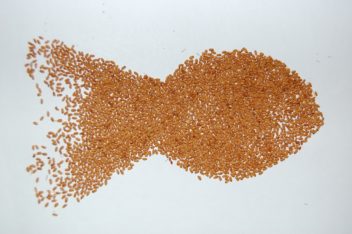
Farmed salmon generally contain less omega-3 fatty acids than wild salmon, because of differences in their diets. But cheaper plant oils can help. Photo: Rothamsted Research
Omega-3 consists of several varieties of fatty acids. Salmon and other oily fish are full of the fatty acids EPA and DHA. But salmon do not produce significant amounts of these substances themselves and have to obtain them through their diet.
“Before, eating farmed salmon twice a month was sufficient to consume enough omega-3. Now you may need to eat it more like twice a week,” says Professor Olsen.
But few people eat salmon that often. Instead, it would be much more convenient to increase the level of omega-3 in the salmon easily with minimum added cost. Researchers have been pursuing this goal for several years.
And now, Olsen and his colleagues, including Johnathan Napier (Rothamsted Research) and Douglas Tocher (University of Stirling), have figured out how to do that, using a plant called Gold-of-Pleasure or camelina (Camelina sativa).
Increased amount of fatty acids
“Genes from algae were transferred to camelina plants so they produced high levels of the fatty acids EPA and DHA in their seeds,” explains Olsen.
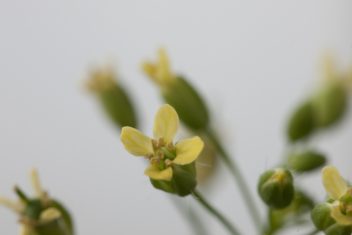
This plant, known commonly as gold-of-pleasure or false flax, can be genetically engineered to make it more suited to salmon feed. Photo: Rothamsted Research
Up to 25 per cent of the oil in the seeds consists of long-chain fatty acids, which in turn increases the level of omega-3 in the salmon.
The oil from these plants was given to the salmon until they doubled their weight. The researchers tested the fish along the way in terms of growth, stress and disease resistance, without finding any problems.
“The salmon are doing well,” says Olsen.
But they did find one important difference.
“The amount of EPA and DHA in the salmon meat increased to levels similar to those in fish that are fed high levels of fish oils,” says Olsen.
As a first step, the researchers’ results are good news and offer a possible solution to increasing omega-3 oils in the fish. But for the industry to put it into practice, the product needs to be available and at a lower cost than it is today.
Availability and price
A few decades ago, farmed salmon were fed far greater amounts of pure fish oil. However, increased production has resulted in a shortage of fish oils and has led to the use of vegetable oils – which do not contain these fatty acids – instead of fish oil. Thus, the farmed fish now have far lower amounts of EPA and DHA.
“To restore the high levels, we have to find new sources,” says Olsen. “These sources have to be relatively cheap to produce and be readily available to the aquaculture industry.”
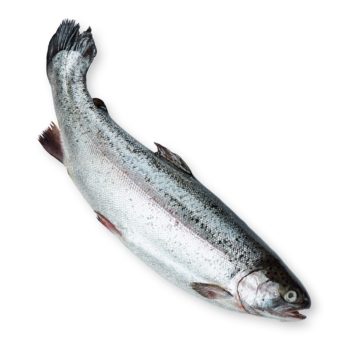
Salmon and other fatty fish are full of EPA and DHA, two important fatty acids.But on their own, farmed salmon don’t produce much of these substances. Photo: Colourbox
Availability is an important factor. Aquaculture already accounts for around 75 per cent of all marine fish oil consumption in the world. Salmon production consumes over 60 per cent of this.
Farmed salmon mostly eat a vegetarian diet, and microalgae and yeast are being explored as ways to help provide them with necessary nutrients, but the supply of these substances is both limited and expensive.
Plant oils from camelina offer a potential alternative. It is relatively easy for oilseed producers to switch to the genetically modified camelina.
“The production process can make use of existing methods, farmland and infrastructure for the oil plants and is a cost-effective and efficient alternative,” Olsen says.
Still healthy
Omega-3 has been shown to protect against cardiovascular disease, reduce inflammation and have a positive effect on brain development.
Salmon is an important source of omega-3. But salmon is healthy for other reasons as well. It contains a lot of monounsaturated fat, which in the right amounts is better than most of the saturated fat you eat. This doesn’t mean that it can’t be made even healthier.
The research group is international. Professor Olsen is the senior author of two articles, and Mónica B. Betancor of the University of Stirling is the first author. Rothamsted Research has been responsible for gene transfer and oil production. The Norwegian Institute of Marine Research has also been a partner in the project.
Further experiments in Scotland under the auspices of the University of Stirling will follow the fish from about 200 grams to their slaughter weight of about four kilograms to make sure they do not suffer in any way.
References:
Oil from transgenic Camelina sativa containing over 25 % n-3 long-chain PUFA as the major lipid source in feed for Atlantic salmon (Salmo salar). Mónica B. Betancor, Keshuai Li), Valentin S. Bucerzan, Matthew Sprague, Olga Sayanova, Sarah Usher, Lihua Han, Fernando Norambuena, Ole Torrissen, Johnathan A. Napier, Douglas R. Tocher og Rolf E. Olsen. British Journal of Nutrition, Volume 119, Issue 12. 28 June 2018 , pp. 1378-1392
An oil containing EPA and DHA from transgenic Camelina sativa to replace marine fish oil in feeds for Atlantic salmon (Salmo salar L.): Effects on intestinal transcriptome, histology, tissue fatty acid profiles and plasma biochemistry. Mónica B. Betancor, Keshuai Li, Matthew Sprague, Tora Bardal, Olga Sayanova, Sarah Usher, Lihua Han, Kjell Måsøval, Ole Torrissen, Johnathan A. Napier, Douglas R. Tocher, Rolf Erik Olsen. PLoS ONE 12(4): e0175415.
